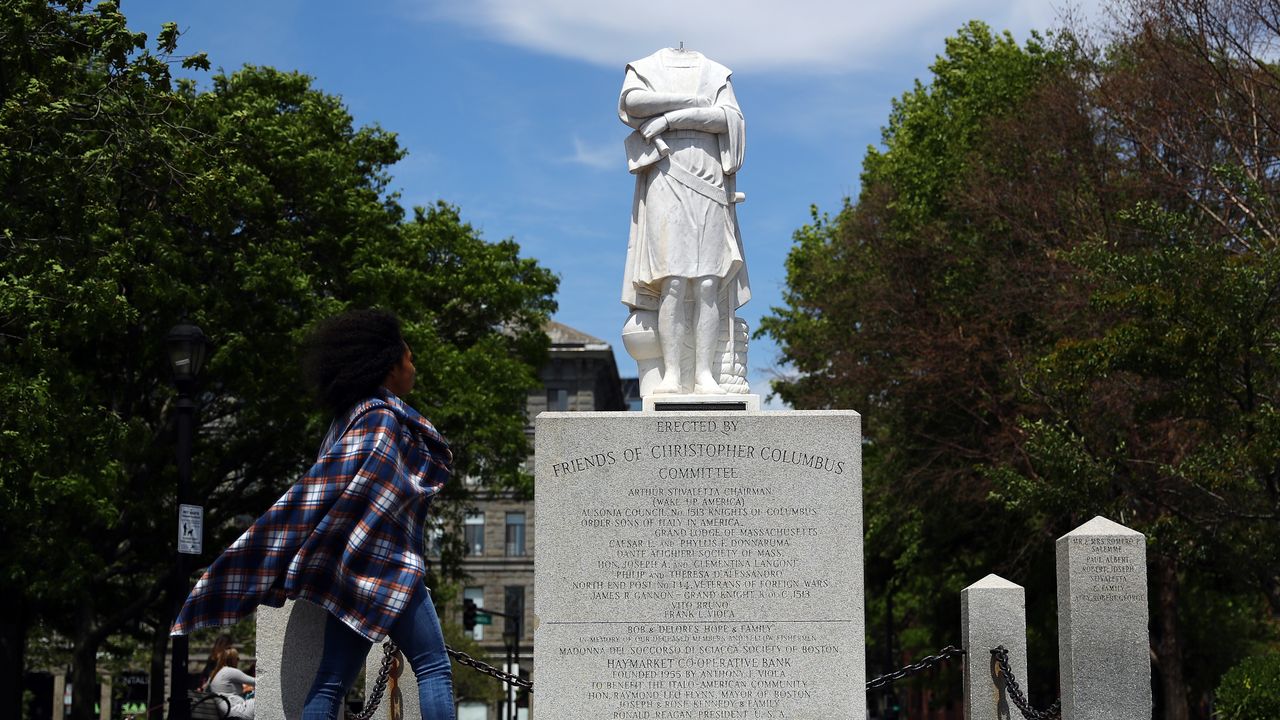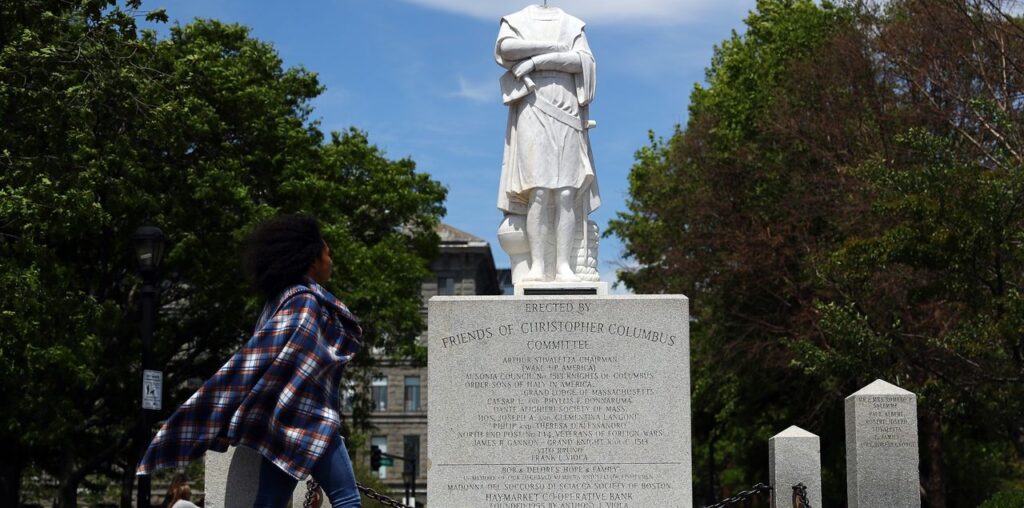
More cities will recognize Indigenous Peoples Day instead of Columbus Day on Monday, but some Native advocates see it as a symbolic gesture that still falls short of the progress needed.
Why it matters: The holiday has a layered and complicated history. Some see Indigenous Peoples Day as overdue recognition for Native communities, while others view replacing Columbus Day as disrespectful to Italian American heritage and a loss of cultural celebration.
- America has a long tradition of celebrating Christopher Columbus and his voyage to this country. However, his legacy has increasingly been questioned in recent years because of the violent aftermath and erasure of the Native American communities.
Catch up quick: President Franklin D. Roosevelt made Columbus Day a federal holiday in 1937 after being pushed by the Knights of Columbus to honor Columbus and celebrate Italian American heritage.
- In 2021, President Biden issued an official proclamation for Indigenous Peoples Day, recognizing Native American contributions—an effort underway for over 30 years.
Zoom in: More than half of U.S. states still refuse to recognize either day as an official state holiday; the divide is more than symbolic—it excavates deeply-rooted tensions over the nation’s identity and history.
- Many states have issued proclamations instead, a compromise that satisfies neither Indigenous advocates nor those who feel Columbus’s legacy should be honored.
Zoom out: For years, Native scholars and lawyers contested the idealized story of U.S. westward expansion, saying it masked displacement and violence.
- It’s something historian and author Roxanne Dunbar-Ortiz argues frames 1492 as the start of this country’s colonial system but is built on genocide, displacement, settler colonialism, white supremacy and exclusion.
- Dunbar-Ortiz highlighted the need to reframe holidays like Indigenous Peoples Day to reflect these historical truths.
Flashback: During the summer of 2020, amid nationwide Black Lives Matter protests, at least 33 Columbus statues were pulled down, along with the removal of numerous Confederate monuments, as part of a broader reckoning with symbols of colonization, racism and historical oppression.
What they’re saying: Gabriel Galanda, a member of the Round Valley Indian Tribes and an Indigenous rights attorney in Seattle, says Indigenous Peoples Day is a symbolic gesture.
- “It gives Americans a brief opportunity to reflect on our existence, but it doesn’t address the legal and civil rights issues plaguing our communities.”
- Galanda criticized the observance of Indigenous Peoples Day, along with related proclamations and land acknowledgments, recognizing Indigenous peoples as the original inhabitants of American land but failing to address the deeper systemic issues Native people face.
His concern centers on the 100th anniversary of the Indian Citizenship Act, which granted Native Americans citizenship through federal statute. It’s not a constitutional guarantee — yet many of the same challenges persist today.
- Galanda said he’s “fought against disenrollment and housing evictions within Indigenous communities” for 12 years.
- “The process of disenrollment—essentially de-citizenship—has stripped over 10,000 Native people of their tribal status, cutting them off from their homelands and safety nets,” he said.
- “Without recourse or protections, many of those evicted end up displaced and vulnerable to violence or trafficking.”
State of play: Galanda said neither major political party has fully addressed the core issues. While acknowledging Indigenous communities’ structural challenges, he remains driven by the belief that change is possible — though difficult.
- Beyond his 2021 proclamation, Biden has taken further steps to support Native communities through policies focused on tribal sovereignty, federal funding reform and infrastructure investment.
- Vice President Kamala Harris’ campaign spokesperson Jaidan Idarraga told Axios on Saturday Harris has “the largest ever national Tribal organizing program, with Tribal organizers in each of our key states who are communicating the stakes of this election directly with Tribal communities.”
- The Trump campaign did not specify how it would serve Native Americans.
The bottom line: Galanda says that until Indigenous people are given civil rights protections like other Americans, conversations, proclamations and holiday observances will remain insufficient.
- “My hope, despite my cynicism, is that these dynamics can turn the other way… but every day I see more citizens and less hope given the forces at play.”
More from Axios:
- Map to go: Indigenous Peoples Day
- Indigenous Peoples Day celebrations in D.C.
- Indigenous advocates call for action beyond land acknowledgements
Editor’s note: This story has been updated with a statement from Harris’ campaign.

